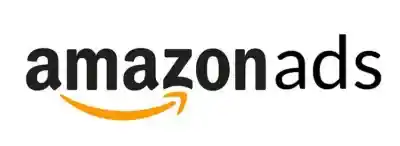What is a PMP ?
PMP is an abbreviation that stands for Private Marketplace – an exclusive domain within the realm of programmatic advertising. Contrary to the general access nature of public marketplaces, PMP operates on a strictly invitation-only basis. This unique space is intended for Real Time Bidding (RTB), facilitating an environment that breeds exclusivity and precision in the world of online advertising.
PMP Advertising
In PMPs, the usual participants are publishers who are esteemed for their high-quality content and wide-reaching influence. These publishers present their ad inventory to a selected, exclusive group of advertisers, who then have the opportunity to bid for the highest premium placements within their digital realms. This process not only encourages competitive pricing but also fosters an environment of high-quality advertising content.
Unraveling the PMP Transaction Process
A PMP transaction doesn’t follow the automated processes common in other digital advertising environments. Here, the DSP, or Demand Side Platform, of the purchasing party gains direct access to the inventory of the publisher. This hands-on approach entails a series of manual steps, each intricately linked to the other.
When a buyer enters a PMP, they are assigned a unique Deal ID, a virtual handshake signifying their eligibility to partake in the bid. The terms and conditions of each transaction are pre-negotiated, often tailored to the unique requirements of both the publisher and the advertiser. For the advertiser to finally secure the desired ad space, they must first receive the green light of approval from the publisher. PMPs operate on an impression-based selling model, ensuring both the quality and reach of each sold advertisement.
The Advantages of buying via a PMP
Operating within a PMP presents several key advantages for both publishers and advertisers. For publishers, it offers a greater degree of control over who gets to advertise on their platforms, helping to maintain the quality of their content and ensuring a certain level of exclusivity. This benefits advertisers as they can secure relationships with these high-quality publishers, and access premium inventory that would otherwise be unavailable in an open auction.
Additionally, PMPs present an opportunity for advertisers to secure tailored deals that meet their specific requirements. They can target particular audience segments, effectively optimize their campaigns, and alter their advertisements in real-time, all made possible by automated workflows inherent to PMPs.
Beyond these, PMPs offer other significant benefits. Advertisers gain access to ad inventory that is unavailable in open auctions. This exclusive access often comes at a lower price, effectively offering premium access without the usual hefty cost. PMPs also facilitate better direct sales, improving the overall reach and effectiveness of an advertiser’s campaign.
Key Considerations for PMP Usage
While PMPs offer a range of benefits, it’s crucial for advertisers to consider the potential challenges before diving headfirst into this exclusive world. PMPs require manual management, and the negotiation process may not suit all advertisers. The benefits must outweigh the costs and the potential challenges.
PMPs form an essential part of an advertiser’s toolkit, providing a more targeted approach to ad buying. However, they should not be seen as a complete replacement for open auctions or other programmatic advertising methods. Rather, they should be considered as part of a broader, more comprehensive advertising strategy.
With the rapid evolution of the digital advertising landscape, strategies such as PMPs offer new avenues for advertisers to reach their target audiences. By leveraging PMPs, advertisers can access premium ad spaces, tailor their campaigns more effectively, and build relationships with high-caliber publishers, all while enjoying the exclusivity and control that these private marketplaces provide. However, it’s crucial to understand the unique characteristics and requirements of PMPs to fully harness their potential in an ever-changing advertising landscape.
« Back to Programmatic Glossary Index
Food Targeting Categories
Since 2008, Gourmet Ads has been the global leader in food-focused advertising, specializing in Contextual Targeting. Discover a wide range of Food Targeting Categories for your next advertising campaign or programmatic deals, including Alcohol, Beverage, Cuisine, Diet, Ingredient, Kitchen Appliances, Non-Endemic, Publisher, and Recipe Targeting. We ensure your brand resonates with an engaged, culinary-inclined audience, transforming advertising campaigns into deliciously successful endeavors. Experience Gourmet Ads—where your message meets the appetite of your desired market.
Let’s Get Started !
Let the Gourmet Ads team walk you through all the options available to ensure that your Food, Supermarket, Beverage or Kitchen advertising campaign has the best possible combination of Premium Guaranteed Inventory, Scale, First Party Data, Contextual Targeting and Programmatic Advertising elements.















